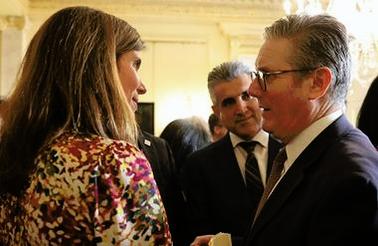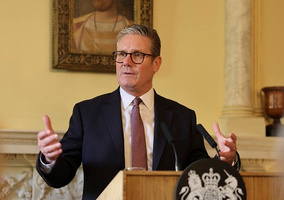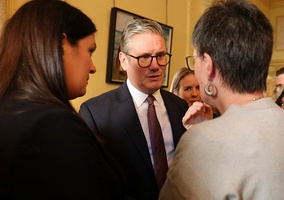As political, social and economic pressures intensify, so too does the strain on those who rely on the voluntary sector.
As such, the upcoming launch of the Civil Society Covenant presents a rare and important opportunity. It offers the chance to reset the relationship between government and civil society on the basis of mutual trust and respect so we can best serve people and communities. At NCVO and ACEVO, we believe this opportunity must not be squandered.
Over the past year, we’ve engaged with over 1,000 civil society organisations of all types and sizes to hear their experiences of working with government at a national and local level.
The views we heard from a range of organisations and civil society leaders, spanning charities, community groups, social enterprises and infrastructure bodies painted a consistent picture: the relationship between civil society and government is too often defined by mistrust, short-termism and a lack of mutual understanding.
Trust eroded
We’ve taken everything we heard during the engagement phase of the covenant’s development, synthesised the sector’s input and published a report of our findings. The report highlights that the barriers and challenges are wide-ranging, but not insurmountable.
Many organisations, particularly smaller ones, told us they feel excluded from decision-making. They described bureaucratic hurdles, burdensome funding processes, and a culture that too often views civil society as either a delivery vehicle or a campaigning nuisance – rarely as a valuable strategic partner.
There is a clear sense that the fundamentals of good collaboration – open communication, long-term investment, and trust have been eroded over time. These are not new issues, but what is new is the political and social context in which they are being raised: a time of increasing public demand for integrity, transparency and the need for collaborative solutions to complex problems.
A robust relationship with government is vital to ensure we can both deliver in partnership and hold those in power to account for the benefit of the public.
Concrete commitments needed
Civil society can, and must, play a central role in meeting these challenges. We are innovators, connectors, and, when necessary, challengers. But we cannot fulfil that role effectively without the right conditions.
The draft covenant principles of participation, partnership, recognition and transparency are broadly supported. But as we heard throughout our engagement, principles alone are not sufficient. Without action, they risk becoming platitudes. The covenant must be underpinned by concrete commitments and actions from both government and civil society.
We’ve outlined clear recommendations in our report that we believe are necessary to ensure the covenant has real impact and leads to tangible change. These include appointing civil society leads in every government department and requiring departments to report on how they are engaging with civil society, as well as creating levers to compel improved partnership working at a local level.
On our side, civil society must also commit to greater collaboration within our sector, more inclusive representation, and service user involvement.
We also need the right legislative and policy environment. This means reviewing guidance and laws that inhibit advocacy and ensuring public funding processes are proportionate, accessible and aligned with long-term impact.
Potential for systemic change
The covenant is not a silver bullet. But, if done right, it can be a powerful catalyst for systemic and cultural change. It can help us move away from intermittent engagement and toward long-term, meaningful collaboration. It could be a way to help ensure that civil society is not an afterthought in policy development, but a core partner in shaping the future.
We welcome the efforts of DCMS and No.10 to work with civil society in the development of the covenant. But the real test will be in its implementation. This must be a whole-of-government commitment, at both national and local levels and across public bodies. Not a siloed initiative. And it must be continuously reviewed, refined and resourced.
If the covenant is well implemented the knowledge, insight and power of civil society can be better leveraged as a strategic partner in decision-making and delivery for the benefit of people and communities.
True partnership is the sector being able to challenge where necessary, contribute to policy-making and making sure lived experiences are valued as part of the process.
We stand ready to support this next phase. But we will also hold government to account if momentum stalls. Because at a time of financial strain and social challenge, communities need a strong, trusted, and empowered civil society more than ever.
Let this be the start of a new chapter - one defined not by missed opportunities, but by shared purpose, principled action, and lasting impact.
Related articles












